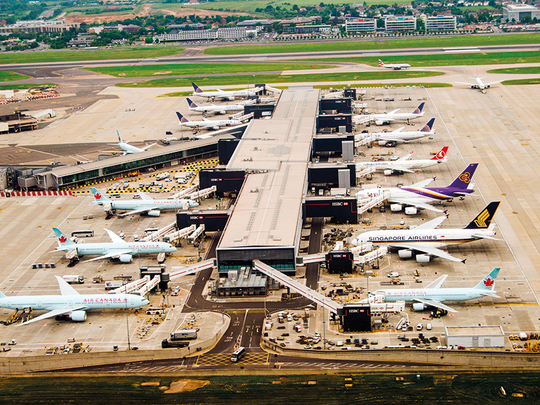
Sydney, Frankfurt
Almost a decade of good times may be over for airlines worldwide.
The rising cost of fuel will eat into profits “significantly” from next year, Alexandre de Juniac, chief executive officer of the International Air Transport Association (IATA), said in Sydney on Thursday.
“We are probably at the peak of the cycle,” he said, addressing media before IATA’s annual meeting next week. “Next year will be less positive.”
Airlines will still report “solid profits” for 2018, although not at the level IATA previously expected, he said. The body in December forecast total net profits would be $38.4 billion this year, up from $34.5 billion in 2017, marking a ninth straight year of profits. Updated numbers will be released on Monday, he said.
If oil prices continue past $80 a barrel, “it will bite hard,” de Juniac said. Brent crude is currently at a more than three-year high of about $77 a barrel.
European airlines have ramped up their hedging in the face of rising prices. Swedish carrier SAS AB on Wednesday said its ratio of hedged fuel increased by 10 points to 83 per cent of needs for the three months ending in July, and to 91 per cent for the three months through October. That’s up from 39 per cent it reported in February for that quarter.
One airline standing pat for now is Norwegian Air Shuttle ASA. The carrier said this week its hedging remains at the 27 per cent it reported at the end of the first quarter. The company, which has resisted an approach by British Airways owner IAG SA, is “reluctant” to hedge at levels of above $80 per barrel oil, said Tore Ostby, executive in charge of strategic development. Norwegian may return to its usual policy of hedging as much as 50 per cent of needs if the price comes down, Ostby said.
Rates, yields
“A continually elevated fuel price would hurt near-term earnings across the airline industry,” Bernstein analyst Daniel Roeska said in a note to clients Wednesday, estimating higher fuel costs will reduce potential earnings by carriers across Europe by as much as 3 billion euros this year. That could “challenge” Norwegian in the shorter term, the analyst concludes, as the airline “could get caught in a perfect storm of declining yields, rising fuel, and increasing interest rates.”
IATA represents about 280 carriers worldwide, or 83 per cent of total air traffic. It’s inevitable that airlines will have to pass some of the fuel burden onto passengers, de Juniac said.








